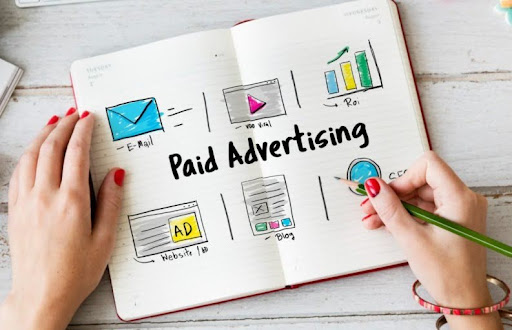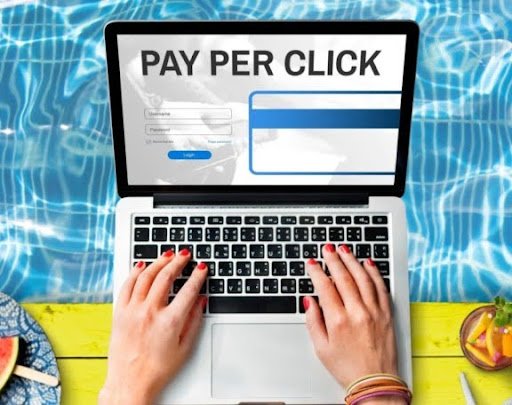In today’s digital world, businesses must adopt strategies that provide measurable and timely results. Paid advertising is now a vital part of modern marketing, enabling companies to reach their target audience more efficiently. While organic marketing methods, such as SEO and content marketing, have their place, they can often take time to deliver results. The advantages of paid marketing allow businesses to achieve their goals faster, with more control over their marketing spend. Through paid promotions, businesses can see immediate results, target specific demographics, and drive higher engagement.
In this blog post, we’ll explore the various benefits of paid marketing, including how businesses can effectively utilize paid advertising to enhance their brand’s visibility, boost sales, and improve return on investment (ROI). We will also delve into the different uses of paid marketing and why it’s an essential tool for companies of all sizes.
Pros of Paid Advertising
What is Paid Advertising?

Paid advertising refers to any form of advertising where a business pays to display its promotional content to a targeted audience. This can be in the form of pay-per-click (PPC) ads, display ads, social media ads, video ads, or sponsored content. The key advantage of paid promotions lies in their ability to deliver instant visibility to a specific audience, bypassing the lengthy wait time often associated with organic marketing methods.

With the numerous uses of paid marketing, businesses can deploy highly targeted campaigns that reach the right people at the right time.By leveraging paid promotions, businesses can tailor their marketing efforts to meet specific goals, whether that’s driving more website traffic, increasing sales, or building brand awareness.
The Key Advantages of Paid Marketing
Instant Results and Quick Impact
One of the most prominent advantages of paid advertising is the ability to see immediate results. Organic marketing strategies, while valuable, can take months to yield significant outcomes. As soon as your ad campaign is launched, it begins appearing in front of your targeted audience, which can lead to immediate website traffic, inquiries, and sales.
This rapid impact is one of the most significant benefits of paid marketing for businesses looking to promote time-sensitive products or services. Whether it’s launching a new product, running a special promotion, or organizing an event, paid marketing ensures your message reaches your audience promptly and effectively.
Precision Targeting for Better Results
Another significant advantage of paid marketing is its ability to target specific audience segments with precision. Platforms like Google Ads, Facebook Ads, and LinkedIn Ads offer
advanced targeting tools that allow businesses to narrow down their audience based on factors such as demographics, interests, behaviors, and geographic location.
With the uses of paid marketing, businesses can avoid wasting their advertising budget on audiences that are unlikely to convert. Moreover, paid promotions can be customized to target different stages of the buyer’s journey. Whether your goal is to raise awareness, generate leads, or drive sales, paid advertising can be tailored to meet these objectives.
Flexibility and Control Over Budget
Budget control is another major advantage of paid promotions. With paid advertising, businesses can set their own budget limits, ensuring they never spend more than they’re comfortable with. This level of flexibility makes paid marketing accessible to businesses of all sizes, whether you’re a startup with a small budget or a large corporation with more substantial marketing resources.
Moreover, businesses have the ability to adjust their spending based on real-time performance data. If a particular ad campaign is performing well, you can increase your budget to capitalize on its success. Conversely, if an ad isn’t generating the desired results, you can reduce your budget or pause the campaign altogether. This ability to make real-time adjustments is one of the critical advantages of paid advertising, giving businesses greater control over their marketing spend and outcomes.
Measurable and Trackable Results
One of the top benefits of paid marketing is its ability to provide measurable and trackable results. Unlike traditional advertising methods—where it’s difficult to gauge the effectiveness of your efforts—paid advertising offers detailed metrics that allow businesses to see exactly how their campaigns are performing. Platforms like Google Analytics, Facebook Insights, and LinkedIn Campaign Manager offer real-time data on impressions, clicks, conversions, and cost-per-click (CPC).
The advantages of paid advertising also include the ability to measure return on investment (ROI) more accurately. By tracking metrics like conversion rates, click-through rates (CTR), and customer acquisition costs (CAC), businesses can assess the profitability of their campaigns and make data-driven decisions for future marketing efforts. This level of transparency is one of the key reasons why so many businesses are embracing paid marketing as part of their overall strategy.

Enhanced Brand Visibility and Recognition
Brand visibility is crucial for businesses looking to stand out in a crowded market. One of the greatest advantages of paid marketing is that it allows your brand to appear at the top of search engine results, social media feeds, and websites—right where your target audience is most likely to see it. By consistently showing up in front of your audience through paid promotions, you can increase brand recognition and build trust over time.
The uses of paid marketing extend beyond just generating leads or sales. It’s also an excellent tool for brand awareness campaigns. Even if users don’t immediately click on your ad or make a purchase, repeated exposure to your brand can have a long-term impact on their buying decisions. By keeping your brand top-of-mind, paid marketing helps establish your company as a trusted leader in your industry.
Higher Return on Investment (ROI)
One of the primary benefits of paid marketing is its potential to deliver a high return on investment (ROI). Unlike traditional advertising methods like print ads or billboards, which often have limited tracking capabilities, paid advertising allows businesses to measure ROI in real-time. By targeting the right audience with the right message, paid promotions can lead to more qualified leads and higher conversion rates.
Moreover, because paid marketing campaigns can be optimized continuously based on performance data, businesses can improve their ROI over time. For example, if certain ads or keywords are underperforming, you can adjust your strategy to focus on the tactics that are working best. This optimization capability is one of the core advantages of paid advertising, ensuring that businesses get the most out of their marketing spend.
Competitor Advantage
In a competitive marketplace, staying ahead of your rivals is critical. One of the advantages of paid promotions is that they allow you to outperform competitors who rely solely on organic methods. By bidding for top placements on search engines and social media platforms, paid marketing helps you secure visibility even when competitors dominate organic rankings.
Furthermore, the uses of paid marketing include competitor analysis tools that allow you to see how your rivals are positioning their ads and what keywords they’re targeting. Armed with this information, businesses can refine their strategies to outbid or outmaneuver competitors, capturing more of the market share.
Remarketing Opportunities
Remarketing, or retargeting, is one of the most effective uses of paid marketing. This strategy allows businesses to re-engage users who have previously visited their website but didn’t convert. Through remarketing campaigns, you can show targeted ads to these users as they browse other websites or social media platforms, keeping your brand visible and reminding them of your products or services.
The advantages of paid advertising in remarketing are substantial, as they enable businesses to stay connected with potential customers who are already familiar with their brand. By serving personalized ads to these individuals, businesses can increase the likelihood of conversion while reducing the cost of customer acquisition.
Conclusion
The advantages of paid marketing are vast, making it a crucial component of any modern marketing strategy. From immediate results and precise targeting to budget control, measurable outcomes, and high ROI potential, paid advertising offers businesses the tools they need to succeed in today’s competitive digital landscape. The various uses of paid marketing enable companies to tailor their campaigns to meet specific objectives, from building brand awareness to generating leads and increasing sales.
As digital marketing continues to evolve, the role of paid advertising will only become more important. If you haven’t yet incorporated paid promotions into your strategy, now is the perfect time to start. With the right approach and ongoing optimization, paid marketing can be a powerful tool for driving business growth and long-term success.
